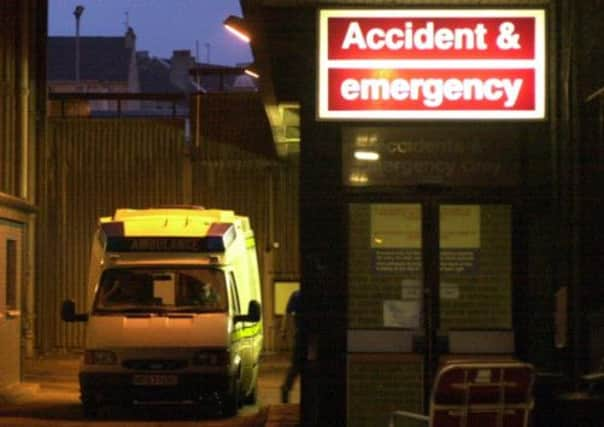Legionnaires’ disease: New cases not ruled out


• Health officials have not ruled out an increase in cases of Legionnaires’ disease, although no new cases have been found
• Five people in greater Glasgow area have been admitted to hospital; only two have so far been discharged
Advertisement
Hide AdAdvertisement
Hide AdThree out of the five people who have caught the disease remain in hospital in Glasgow and are said to be responding well to treatment.
NHS Greater Glasgow and Clyde has identified the town of Renfrew as a link between the five cases of three men and two women aged between 49 and 79.
Two of the five infected people live in the town and the other three have either visited or worked there during the disease’s two-week incubation period.
As a precaution, 14 water cooling towers within a four-mile radius of the homes of the two people who live in Renfrew have been treated with chemicals that kill the Legionella bacteria.
Samples from water supplies are also being examined but test results will not been known for some time, according to the health board.
Legionnaires’ disease is an uncommon but serious form of pneumonia, caused by bacteria distributed widely in natural and artificial water supplies.
It is usually caught by breathing in microscopic droplets of contaminated water. The disease cannot be spread from person to person or by drinking contaminated water.
Legionella bacteria is commonly found in harmlessly low numbers in sources of water such as rivers and lakes but the bacteria can rapidly multiply and become dangerous if it moves into artificial water supplies such as air conditioning systems.
Advertisement
Hide AdAdvertisement
Hide AdResidents in the Renfrew area are urged to continue to drink water and prepare food in the normal way.
An outbreak of the disease in south-west Edinburgh last summer led to the deaths of three men among 101 confirmed and suspected cases.
Dr Gillian Penrice, NHS Greater Glasgow and Clyde’s consultant in public health, said: “I am pleased that there have been no further reported cases. However, there is still the possibility that some cases may be identified, given the two-week incubation period of the disease.
“We have notified all community GPs and our frontline hospital teams to keep this outbreak uppermost in their minds when dealing with patients displaying symptoms of headache, fever, dry cough, breathing difficulties, stomach pains and diarrhoea.”
“I would also like to take the opportunity to thank our Health and Safety Executive, Health Protection Scotland, Renfrewshire Council and other local authority partners for their continued assistance in investigating any possible sources of the disease.”
SEE ALSO